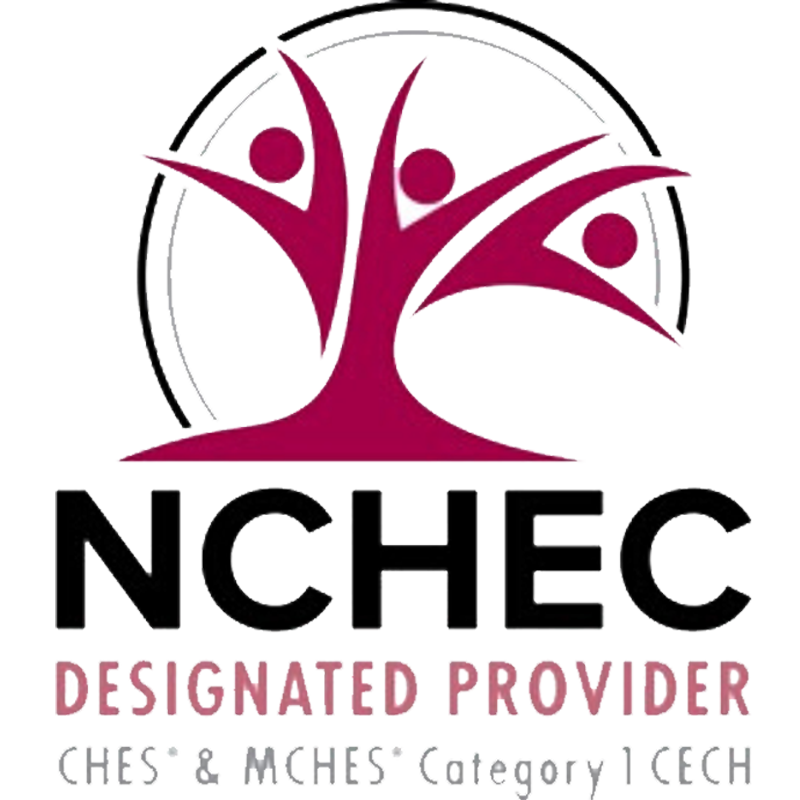

Community Voices in Cancer Prevention and Control: Maine’s Collaborative Approach to Shaping the 2021–2030 Cancer Plan
How can community engagement strengthen the development of strategic plans?

Course Information
- Audience: All public health professionals working in nonprofits, healthcare, educational institutions, government and private sector
- Format: Webinar
- Date/Time: December 4th, 2025 12:00 PM – 1:00 PM ET.
- Price: Free
- Length: 1 hour
- Credential(s) eligible for contact hours: Sponsored by New England Public Health Training Center (NEPHTC), a designated provider of continuing education contact hours (CECH) in health education by the National Commission for Health Education Credentialing, Inc. This program is designated for Certified Health Education Specialists (CHES) and/or Master Certified Health Education Specialists (MCHES) to receive up to 1 total Category I continuing education contact hours. Maximum advanced-level continuing education contact hours are 1. Provider ID: Event ID: .If you are not seeking a CHES/MCHES contact hours, if you complete the post-test and evaluation, you will receive a Certificate of Completion. The Certificate will include the length of the course.
- Competencies: Community Dimensions of Practice Skills
- Learning Level: Awareness
- Companion Trainings: None
- Supplemental materials:None
- Pre-requisites: None
About this Webinar
Cancer remains a leading cause of death in Maine, with persistent disparities in prevention, screening, treatment, and survivorship. In preparation for expanding the Maine Cancer Plan 2021 – 2025 through 2030, the Maine CDC’s Comprehensive Cancer Control Program collaborated with Partnerships For Health to implement a robust, community-centered engagement process. This multi-phase approach included a statewide survey, two virtual listening sessions, and an in-person Summit - each designed to elevate local voices, build connections, and shape shared priorities for action. This presentation will share key themes from the engagement process, highlight examples of how community connections strengthened the planning process, and offer practical insights for embedding comprehensiveness, transparency, and collaboration into statewide public health strategies. Attendees will leave with engagement strategies that can be applied to other chronic disease planning initiatives, particularly those seeking to bridge social divides and foster trust through authentic dialogue.
Learning Objectives
-
Explain how community engagement methods such as surveys, listening sessions, and summits can be used to surface and prioritize public health strategies.
- Describe two or more strategies for building authentic community connections to inform and strengthen statewide public health planning efforts.
-
Subject Matter Expert(s)
 Becky Pearce, MA
Becky Pearce, MA
Michelle Mitchell, MSocSc
Becky is the Health Program Manager for the Maine CDC Comprehensive Cancer Control Program. She came to Maine CDC from the world of academia after teaching communication classes at various colleges in the U.S. for 20 years. Becky began working for the tobacco program at Maine CDC in May of 2008. She was hired to oversee the media contract for the program as well as to work with two rural public health districts on physical activity, nutrition, and tobacco. In 2012 she began working with the cancer program and moved into the Program Manager position in 2022. Since then she has worked on cancer prevention, promoting the US Preventive Services Task Force cancer screening recommendations, HPV vaccinations, radon testing, lung cancer screening, and has been involved with the updating of multiple cancer plans. Becky holds a BA and a MA in communication from the University of North Dakota.
Michelle is the Founder and Executive Director of Partnerships For Health, where she serves as Principal Investigator for statewide and community-based evaluations. She earned her Master of Social Science in Clinical Psychology from the University of Natal in South Africa, following a Bachelor of Commerce with Honors in Psychology and a Bachelor of Commerce in Information Systems and Psychology from Rhodes University. She began her public health career in rural South Africa, supporting HIV/AIDS clinical trials, and has since led more than 85 evaluations in Maine spanning chronic disease prevention, health systems change, and community engagement. With expertise in evaluation design, stakeholder engagement, and facilitation, Michelle is known for fostering collaboration across sectors and ensuring that diverse voices are meaningfully integrated into public health decision-making.
Enrollment and Contact Hours
Select the Enroll button below to register for the course. If you have any trouble accessing the course, contact support@nephtc.org.
Acknowledgement: This project is supported by the Health Resources and Services Administration (HRSA) of the U.S. Department of Health and Human Services (HHS) as part of award 2 UB6HP31685‐05‐00 “Public Health Training Centers.” The contents are those of the author(s) and do not necessarily represent the official views of, nor an endorsement, by HRSA, HHS or the U.S. Government.This training was supported by the Health Resources and Services Administration (HRSA) of the U.S. Department of Health and Human Services (HHS) as part of a financial assistance award totaling $400,000 with 100% funded by HRSA/HHS and 0% funded by nongovernment source(s). The contents are those of the author(s) and do not necessarily represent the official views of, nor an endorsement, by HRSA/HHS, or the U.S. Government.
* Yale School of Public Health, Office of Public Health Practice, a New England Public Health Training Center partner, is a designated provider of continuing education contact hours (CECH) in health education by the National Commission for Health Education Credentialing, Inc. All CHES credit inquiries are managed by YSPH
Registration
Select the Enroll Me button below to register for this recording. If you have any trouble accessing the recording, contact support@nephtc.org.
Acknowledgement: This project is supported by the Health Resources and Services Administration (HRSA) of the U.S. Department of Health and Human Services (HHS) as part of award 2 UB6HP31685‐05‐00 “Public Health Training Centers.” The contents are those of the author(s) and do not necessarily represent the official views of, nor an endorsement, by HRSA, HHS or the U.S. Government.

Using Stories and Data to Engage Decision-Makers and Advance Transportation Access
What does it mean to be transportation insecure?
And why should it matter to public health practitioners?
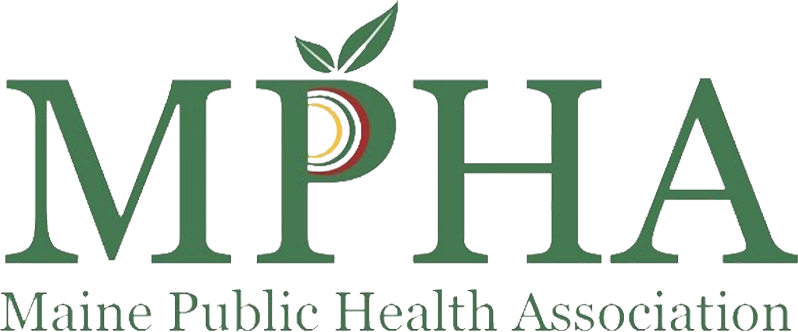
Course Information
- Audience: All public health professionals working in nonprofits, healthcare, educational institutions, government and private sector
- Format: Webinar
- Date/Time: January 8th, 2026 12:00 PM – 1:00 PM ET.
- Price: Free
- Length: 1 hour
- Credential(s) eligible for contact hours: Sponsored by New England Public Health Training Center (NEPHTC), a designated provider of continuing education contact hours (CECH) in health education by the National Commission for Health Education Credentialing, Inc. This program is designated for Certified Health Education Specialists (CHES) and/or Master Certified Health Education Specialists (MCHES) to receive up to 1 total Category I continuing education contact hours. Maximum advanced-level continuing education contact hours are 1. Provider ID: Event ID: .If you are not seeking a CHES/MCHES contact hours, if you complete the post-test and evaluation, you will receive a Certificate of Completion. The Certificate will include the length of the course.
- Competencies: Communications
- Learning Level: Awareness
- Companion Trainings: None
- Supplemental materials:None
- Pre-requisites: None
About this Webinar
Transportation plays a central role in our lives. However, many Mainers lack safe, affordable, and reliable transportation, leading to missed job opportunities, medical care, and social connections. Until now, no comprehensive data existed on how widespread these barriers are and their impact on the health and quality of life of Mainers. The difficulty of measuring this problem has contributed to it being minimized and overlooked. In 2024, the Moving Maine Network set out to address this gap in knowledge by collecting qualitative and quantitative data. Using the Transportation Security Index and a story collection approach, they developed a report called “Try to Imagine It’s You” that is being used to educate and influence decision-makers and help advance effective policy. This webinar will provide an overview of the report and a discussion of education and advocacy efforts.
Learning Objectives
-
Define transportation insecurity and identify how it’s impacting Maine people.
- Discuss how stories and data can be used to help decision-makers understand and respond to transportation barriers.
-
Subject Matter Expert(s)
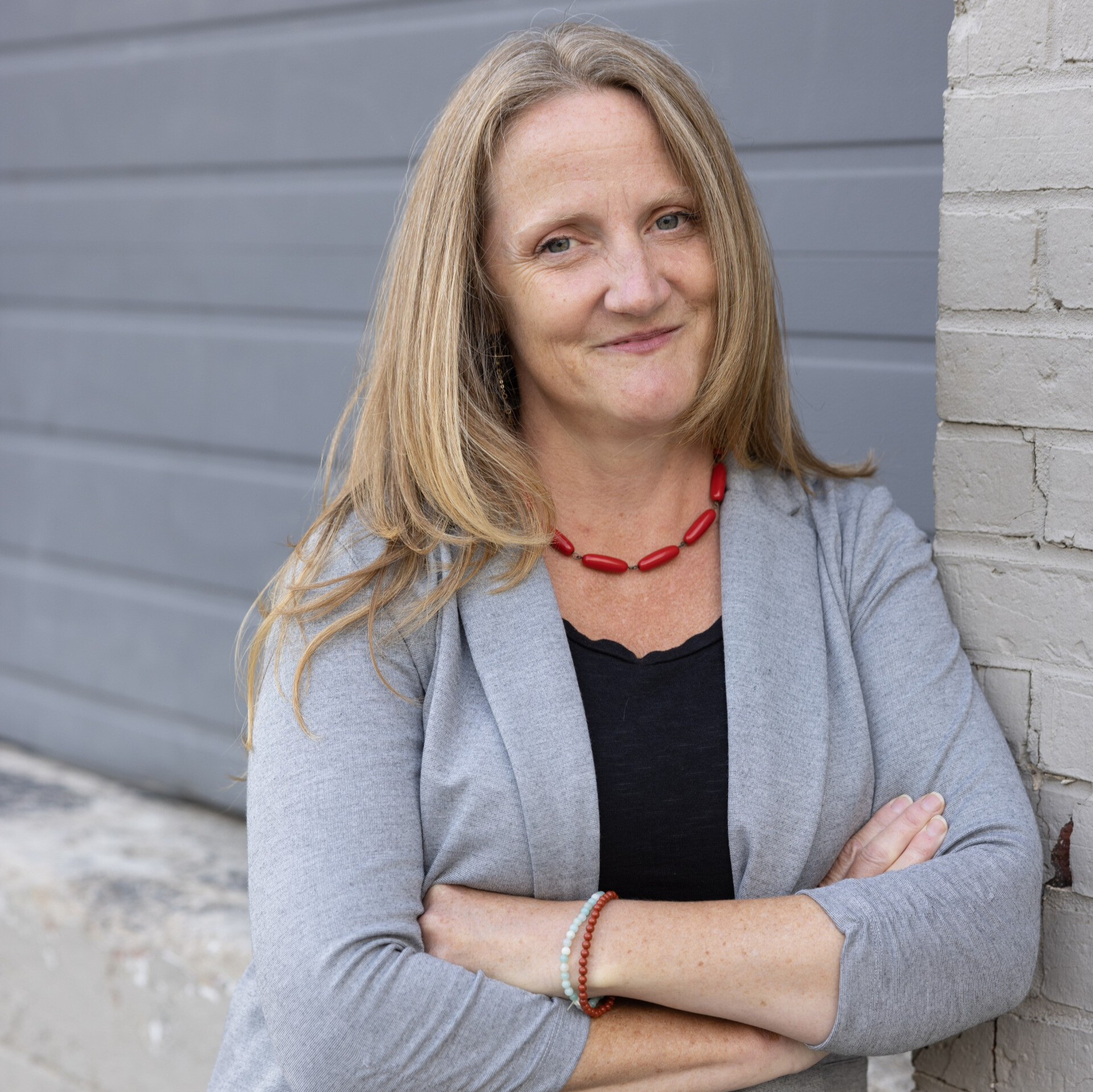 Zoe Miller, MPH
Zoe Miller, MPH
Zoe has over 25 years of experience building healthy, equitable communities through inclusive engagement and collaborative strategies. Growing up in Springvale, Maine, Zoe learned about civic engagement from watching her mother serve on municipal boards and fight speeding on their village road. Working for the Opportunity Alliance in community and public health initiatives, she became passionate about transportation access as a key to advancing health and opportunity. At the Greater Portland Council of Governments from 2017-2021, she led an intersectional team to establish the Mobility for All Program and partnered to launch the Moving Maine Network. Zoe lives in Portland and uses the bus for transportation whenever possible.
Enrollment and Contact Hours
Select the Enroll button below to register for the course. If you have any trouble accessing the course, contact support@nephtc.org.
Acknowledgement: This project is supported by the Health Resources and Services Administration (HRSA) of the U.S. Department of Health and Human Services (HHS) as part of award 2 UB6HP31685‐05‐00 “Public Health Training Centers.” The contents are those of the author(s) and do not necessarily represent the official views of, nor an endorsement, by HRSA, HHS or the U.S. Government.This training was supported by the Health Resources and Services Administration (HRSA) of the U.S. Department of Health and Human Services (HHS) as part of a financial assistance award totaling $400,000 with 100% funded by HRSA/HHS and 0% funded by nongovernment source(s). The contents are those of the author(s) and do not necessarily represent the official views of, nor an endorsement, by HRSA/HHS, or the U.S. Government.
* Yale School of Public Health, Office of Public Health Practice, a New England Public Health Training Center partner, is a designated provider of continuing education contact hours (CECH) in health education by the National Commission for Health Education Credentialing, Inc. All CHES credit inquiries are managed by YSPH
Registration
Select the Enroll Me button below to register for this recording. If you have any trouble accessing the recording, contact support@nephtc.org.
Acknowledgement: This project is supported by the Health Resources and Services Administration (HRSA) of the U.S. Department of Health and Human Services (HHS) as part of award 2 UB6HP31685‐05‐00 “Public Health Training Centers.” The contents are those of the author(s) and do not necessarily represent the official views of, nor an endorsement, by HRSA, HHS or the U.S. Government.
Course Information
- Audience: All public health professionals working in nonprofits, healthcare, educational institutions, government and private sector
- Format: Webinar
- Date/Time: January 22nd, 2026 9:00 AM – 12:00 PM ET.
- Price: Free
- Length: 3 hours
- Credential(s) eligible for contact hours: Sponsored by New England Public Health Training Center (NEPHTC), a designated provider of continuing education contact hours (CECH) in health education by the National Commission for Health Education Credentialing, Inc. This program is designated for Certified Health Education Specialists (CHES) and/or Master Certified Health Education Specialists (MCHES) to receive up to 1 total Category I continuing education contact hours. Maximum advanced-level continuing education contact hours are 1. Provider ID: Event ID: .If you are not seeking a CHES/MCHES contact hours, if you complete the post-test and evaluation, you will receive a Certificate of Completion. The Certificate will include the length of the course.
- Competencies: Community Dimensions of Practice Skill
- Learning Level: Awareness
- Companion Trainings: None
- Supplemental materials:Click here for additional details on the agenda and presenters
- Pre-requisites: None
About this Webinar
This workshop training will feature innovative and community-centered partnerships across Maine that are working to bridge service gaps and improve family, maternal, and child health outcomes. The focus of the presentations will be on improving social isolation, including in rural and underserved communities. Together, these examples will illustrate how Maine is weaving together policy, peer support, and technological innovation to strengthen family wellness across the state. The Maine Doula Coalition and The Maine Women's Lobby underscore how doula and childbirth education services foster social support, reduce isolation, and improve maternal mental health, with doulas serving as vital connectors in rural communities. The Maine State Breastfeeding Coalition spotlights how parent support groups build community resilience, improve parental confidence, enable peer relationships, foster long-term mutual support, and reduce loneliness. Maine Family Planning shares about their pilot of the Mammha smartphone app and how it improves access to perinatal mental health care and support. The app integrates screening, SMS check-ins, peer support, mindfulness tools, and telehealth counseling, delivering critical care via digital platforms.
Presentations
Maine Doula Coalition and Maine Women's Lobby: Community-Based Solutions to the Maternal Health Crisis: Doulas Improving Social Support for Birthing People ● Sarah Tewhey, Maine Doula Coalition ● LeAnne Dunham, Maine Doula Coalition ● Lily James, Maine Women's Lobby
Maine State Breastfeeding Coalition: From Isolation to Empowerment: How New Parent Support Groups Build Community and Confidence in Maine ● Moderator: Kara Kaikini, Maine State Breastfeeding Coalition ● Lulu Churchill, Nature's Hand Maine ● Sarah Hand, Bangor Public Health ● Emily Eastman, MaineHealth Center for Health Improvement ● Abby Pitts, Birth Roots
Mammha, MaineHealth RMOMS Grant, and Maine Family Planning: Using Technology to Bridge The Gap and Provide Critical Perinatal Mental Health Support ● Mathew Scease, Maine Family Planning ● Bekah Elrod, Mammha ● Katherine R. “Kate” Crothers, MaineHealth
Learning Objectives
-
Understand gaps in perinatal and maternal healthcare by exploring how doulas, childbirth education, and innovative community-based strategies can enhance social support and improve health outcomes.
- Identify community-based strategies to reduce social isolation and boost confidence among new parents, and outline steps to replicate or support similar models.
- Understand the risks of isolation, poverty, and limited access to health care faced byperinatal individuals in rural Maine, and their relationship to a successful smartphone‑based support app pilot.
Enrollment and Contact Hours
Select the Enroll button below to register for the course. If you have any trouble accessing the course, contact support@nephtc.org.
Acknowledgement: This project is supported by the Health Resources and Services Administration (HRSA) of the U.S. Department of Health and Human Services (HHS) as part of award 2 UB6HP31685‐05‐00 “Public Health Training Centers.” The contents are those of the author(s) and do not necessarily represent the official views of, nor an endorsement, by HRSA, HHS or the U.S. Government.This training was supported by the Health Resources and Services Administration (HRSA) of the U.S. Department of Health and Human Services (HHS) as part of a financial assistance award totaling $400,000 with 100% funded by HRSA/HHS and 0% funded by nongovernment source(s). The contents are those of the author(s) and do not necessarily represent the official views of, nor an endorsement, by HRSA/HHS, or the U.S. Government.
* Yale School of Public Health, Office of Public Health Practice, a New England Public Health Training Center partner, is a designated provider of continuing education contact hours (CECH) in health education by the National Commission for Health Education Credentialing, Inc. All CHES credit inquiries are managed by YSPH
Registration
Select the Enroll Me button below to register for this recording. If you have any trouble accessing the recording, contact support@nephtc.org.
Acknowledgement: This project is supported by the Health Resources and Services Administration (HRSA) of the U.S. Department of Health and Human Services (HHS) as part of award 2 UB6HP31685‐05‐00 “Public Health Training Centers.” The contents are those of the author(s) and do not necessarily represent the official views of, nor an endorsement, by HRSA, HHS or the U.S. Government.

One Document to Find Them All: Mapping Maine’s State Plans That Impact
Health
Tired of digging through agency websites to find state plans? What if every health-related plan in Maine, across all sectors, were organized, searchable, and easy to use in one place?

Course Information
- Audience: All public health professionals working in nonprofits, healthcare, educational institutions, government and private sector
- Format: Webinar
- Date/Time: September 4, 2025 12:00 PM – 1:00 PM ET.
- Price: Free
- Length: 1 hour
- Credential(s) eligible for contact hours: Sponsored by New England Public Health Training Center (NEPHTC), a designated provider of continuing education contact hours (CECH) in health education by the National Commission for Health Education Credentialing, Inc. This program is designated for Certified Health Education Specialists (CHES) and/or Master Certified Health Education Specialists (MCHES) to receive up to 1 total Category I continuing education contact hours. Maximum advanced-level continuing education contact hours are 1. Provider ID: Event ID: .If you are not seeking a CHES/MCHES contact hours, if you complete the post-test and evaluation, you will receive a Certificate of Completion. The Certificate will include the length of the course.
- Competencies: Communication Skills
- Learning Level: Awareness
- Companion Trainings: None
- Supplemental materials:Slides and follow-up email with any links mentioned during presentation
- Pre-requisites: None
About this Webinar
Maine has dozens of state-level plans that influence health from transportation and emergency preparedness to education and chronic disease prevention. But until now, there hasn’t been a single place to find, compare, and understand them all. In this webinar, Gentille Sandy shares the process and product of a practicum project with the Maine Public Health Association that brings these diverse plans together into one centralized, searchable tool. Learn how the resource was built, what it reveals, and how it can support more strategic, coordinated action across Maine’s public health and government landscape.
What you'll learn
- Understand the process used to identify, extract, and organize Maine’s state-level plans.
- Use the completed document to identify key plan elements, including goals, metrics, recommendations, and funding sources
- Recognize how a centralized tool can support alignment, grant writing, advocacy, and cross-sector planning.
- Explore opportunities to build on this resource through collaboration, updates, or further analysis.
-
Subject Matter Expert
 Gentille
Sandy, RN,
Gentille
Sandy, RN,
Maine Medical Center
Gentille Sandy, RN, MPH Candidate, is an emergency department nurse at Maine Medical Center in Portland with eight years of clinical experience in pediatrics, gastroenterology, and emergency medicine. Pursuing a Master of Public Health with a concentration in Women, Youth, and Child Health, she brings a systems-thinking approach and a commitment to cross-sector collaboration. Passionate about advancing health equity and supporting vulnerable populations, she aims to leverage her clinical expertise to drive meaningful change in public health policy and practice.
Enrollment and Contact Hours
Select the Enroll button below to register for the course. If you have any trouble accessing the course, contact support@nephtc.org.
Acknowledgement: This project is supported by the Health Resources and Services Administration (HRSA) of the U.S. Department of Health and Human Services (HHS) as part of award 2 UB6HP31685‐05‐00 “Public Health Training Centers.” The contents are those of the author(s) and do not necessarily represent the official views of, nor an endorsement, by HRSA, HHS or the U.S. Government.
This training was supported by the Health Resources and Services Administration (HRSA) of the U.S. Department of Health and Human Services (HHS) as part of a financial assistance award totaling $400,000 with 100% funded by HRSA/HHS and
0% funded by nongovernment source(s). The contents are those of the author(s) and do not necessarily represent the official views of, nor an endorsement, by HRSA/HHS, or the U.S. Government.
* Yale School of Public Health, Office of Public Health Practice, a New England Public Health Training Center partner, is a designated provider of continuing education contact hours (CECH) in health education by the National Commission for Health Education Credentialing, Inc. All CHES credit inquiries are managed by YSPH
Registration
Select the Enroll Me button below to register for this recording. If you have any trouble accessing the recording, contact support@nephtc.org.
Acknowledgement: This project is supported by the Health Resources and Services Administration (HRSA) of the U.S. Department of Health and Human Services (HHS) as part of award 2 UB6HP31685‐05‐00 “Public Health Training Centers.” The contents are those of the author(s) and do not necessarily represent the official views of, nor an endorsement, by HRSA, HHS or the U.S. Government.
Creating Transgender Inclusive Healthcare Environments
Are you addressing the needs of transgender persons in your healthcare organization?


Course Information
- Audience: Public health professionals, Community Health Centers, Community Health Workers, Program Manager
- Format: Webinar
- Date/Time: July 16, 2019
12:00 - 1:00 PM EST - Price: Free
- Length: 1 hour
- Credential(s) eligible for contact hours: Sponsored by New England Public Health Training Center (NEPHTC), a designated provider of continuing education contact hours (CECH) in health education by the National Commission for Health Education Credentialing, Inc. This program is designated for Certified Health Education Specialists (CHES) and/or Master Certified Health Education Specialists (MCHES) to receive up to 1 total Category I continuing education contact hours. Maximum advanced-level continuing education contact hours are 1. Provider ID: 1131137 Event ID: SS1131137_CTIHE.
If you are not seeking CHES/MCHES contact hours, if you complete the evaluation, you will receive a Certificate of Completion. The Certificate will include the length of the course. - Competencies: Policy Development and Program Planning Skills
- Learning Level: Awareness
- Companion Trainings: None
- Supplemental materials: Session PowerPoint
- Pre-requisites:None
About this Webinar
This course is designed to support public health and healthcare professionals to develop inclusive environments for transgender and gender diverse individuals. We will review current terms and methods for collecting useful and affirming demographic data. We will also discuss the steps taken and strategies used to create an integrated trans health care program in a large FQHC in Rhode Island.
What you'll learn
At the end of the course, participants will be able to:
- Discuss strategies for collecting accurate and useful demographic data that is gender inclusive
- Define trans inclusive language/terminology and opportunities to apply affirming language in current public health and healthcare settings
- Identify strategies for creating an integrated trans health care program within a FQHC
- Understand opportunities to support policies to improve health outcomes for transgender and gender diverse individuals
Subject Matter Expert

Jayeson Watts, LICSW
Trans Health Program Director, Thundermist Health Center.
Jayeson Watts, LICSW is the Trans* Health Program Director at Thundermist Health Center. For the past 10 years, he has played a key role in organizing, activism and policy change efforts for Rhode Island’s Transgender community. Jaye has used both his professional and life experiences to educate a wide range of audiences on LGBTQ+ related topics with a focus on building competency and capacity to meet the needs of gender diverse individuals in medical and behavioral health settings. He has a Master’s Degree in Social Work from Rhode Island College and a Bachelor’s Degree in Music Therapy form Mansfield University.
Registration and Contact Hours
Select the Enroll button below to register for this webinar. If you have any trouble accessing the webinar, contact trainingmanager@nephtc.org.
The Certificate of Completion will include the length of the webinar. Generally 50 – 60 minutes is equivalent to 1 contact hour. Contact hours may be applicable towards continuing education requirements for certain credentials. Check with your credentialing body to verify if the topic meets its continuing education requirements.

Queer and Trans Youth: Creating Affirming Care and Supportive Spaces
How can you create safe and affirming environments for queer and trans youth?
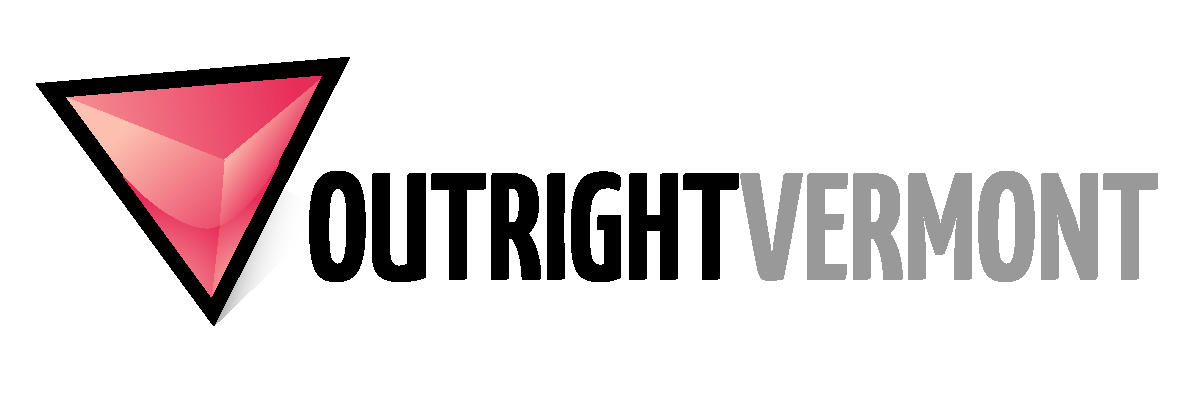


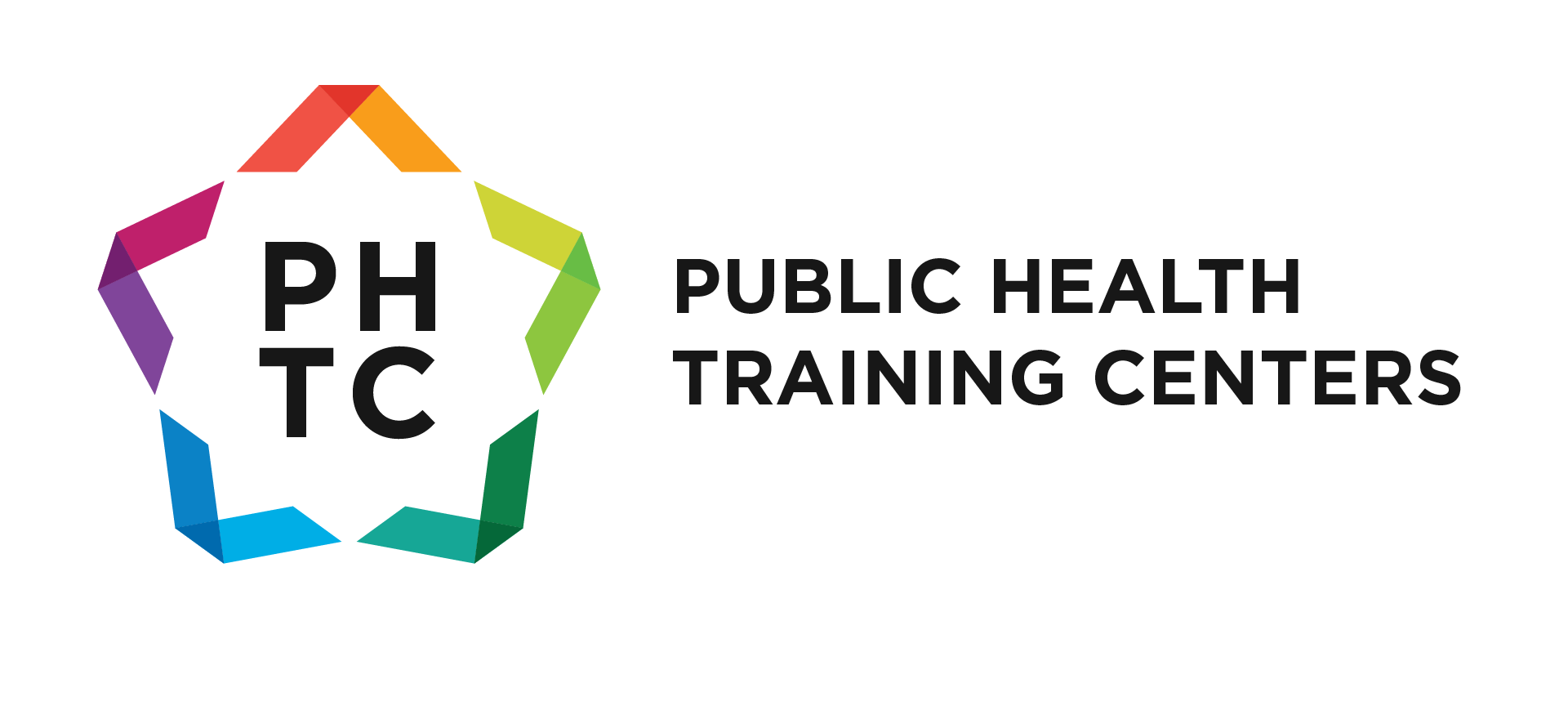

Register
Course Information
- Audience: Primary Care, Mental Health workers, school staff, public health, non-profit organizations working with children and families
- Format: Online Webinar
- Date/Time: February 22, 2018
2:00-3:00 PM - Price: Free
- Length: 1 hour
- Credential(s) eligible for contact hours: Sponsored by New England Public Health Training Center (NEPHTC), a designated provider of continuing education contact hours (CECH) in health education by the National Commission for Health Education Credentialing, Inc. This program is designated for Certified Health Education Specialists (CHES) and/or Master Certified Health Education Specialists (MCHES) to receive up to 1 total Category I continuing education contact hours. Maximum advanced-level continuing education contact hours are 0. Provider ID: 1131137 Event ID: SS1131137_QTYCACSS.
If you are not seeking CHES/MCHES contact hours, if you complete the evaluation, you will receive a Certificate of Completion. The Certificate will include the length of the course. - Competencies: Health Equity Skills
- Learning Level: Awareness
- Supplemental materials: PowerPoint
- Pre-requisites: None
About this Webinar
This webinar provides thoughtful instruction about youth across a spectrum of gender and/or sexual identities as an important foundation for today’s schools, health, public health and service providers. This webinar will provide an overview of concepts and appropriate terminology. It will then describe emerging best practices to ensure sound accommodations and equitable access for queer and trans kids.
While the data cited are from to Vermont Youth Risk Behavior survey, the underlying practice and public health implications are applicable to all states and jurisdictions.
What you'll learn
At the end of the course, participants will be able to:
- Name two actions you can take to ensure equitable access for all queer/trans youth.
- Identify two risk factors and protective factors in the lives of LGBTQ+ youth
- Differentiate between current terminology as it relates to gender and sexuality.
Subject Matter Expert

Dana Kaplan (he/him)
Executive Director
Outright Vermont
Registration and Contact Hours
Select the Enroll button below to register for this webinar. If you have any trouble accessing the webinar, contact trainingmanager@nephtc.org.
The Certificate of Completion will include the length of the webinar. Generally 50 – 60 minutes is equivalent to 1 contact hour. Contact hours may be applicable towards continuing education requirements for certain credentials. Check with your credentialing body to verify if the topic meets its continuing education requirements.

Course Information
- Audience: Public Health Professionals
- Format: Webinar
- Date/Time: Friday, January 21 2022 12:00 PM – 2:30 PM EST
- Price: Free
- Length: 2.5 hours
- Credential(s) eligible for contact hours: Sponsored by New England Public Health Training Center (NEPHTC), a designated provider of continuing education contact hours (CECH) in health education by the National Commission for Health Education Credentialing, Inc. This program is designated for Certified Health Education Specialists (CHES) and/or Master Certified Health Education Specialists (MCHES) to receive up to 1 total Category I continuing education contact hours. Maximum advanced-level continuing education contact hours are 1. Provider ID: 1131137 Event ID: PM1131137_01212022. If you are not seeking a CHES/MCHES contact hours, if you complete the post-test and evaluation, you will receive a Certificate of Completion. The Certificate will include the length of the course.
- Competencies: Health Equity Skills
- Learning Level: Awareness
- Companion Trainings: None
- Supplemental materials:None
- Pre-requisites: None
About this Webinar
The Transgender Introductory Primer is ideal for a variety of professionals in the helping and health professions, particularly mental health, social service and medical providers. During this training, participants will learn basic terminology and theory, how to ask for pronouns, health disparities facing the transgender community, resiliency factors, gender transition paths and support needs, and targeted best practices. Providers will have an opportunity following the training to list themselves in MaineTransNet's community health database.
What you'll learn
At the end of the course, participants will be able to:
- Understand basic terminology and theory as they relate to transgender health.
- Describe health disparities facing the transgender community.
- Identify resiliency factors, gender transition paths and support needs, and targeted best practices for serving the transgender community.
This webinar will be recorded and made available within 2 business days of the webinar close. Please log in to view the recording in the section "View a Recording of the Webinar. "
Subject Matter Expert

Quinn Gormley
As the Executive Director of Maine TransNet, Quinn’s work ranges from community building initiatives, expanding health equity and access across the state, suicide prevention, policy advocacy, and violence prevention. Before MTN, Quinn worked in a variety of community organizing settings, including at the Health Equity Alliance managing a rural HIV testing program and building rural LGBTQ+ communities, and with the Maine People’s Alliance working on economic and health justice issues. Throughout her work, Quinn believes in centering the wellness of marginalized communities, and that the root of power and liberation can be found in communities that embrace their diversity and interdependence. She lives with her husband Ezra and their dog Zoe in Auburn, Maine.
Registration
Select the Enroll Me button below to register for this recording. If you have any trouble accessing the recording, contact support@nephtc.org.
Acknowledgement: This project is/was supported by the Health Resources and Services Administration (HRSA) of the U.S. Department of Health and Human Services (HHS) under grant number UB6HP31685 “Regional Public Health Training Center Program.” This information or content and conclusions are those of the author and should not be construed as the official position or policy of, nor should any endorsements be inferred by HRSA, HHS or the U.S. Government.

Transgender Public Health in Maine Through the Lens of Tobacco Use
What does public heath through the lens of tobacco use look like for transgender people in Maine?


Register
Course Information
- Audience: Public health professionals, medical professionals, researchers
- Format: Webinar
- Date/Time: Thursday, January 5th 2023
10:00 AM – 12:00 PM EST - Price: Free
- Length: 2 hours
- Credential(s) eligible for contact hours: Sponsored by New England Public Health Training Center (NEPHTC), a designated provider of continuing education contact hours (CECH) in health education by the National Commission for Health Education Credentialing, Inc. This program is designated for Certified Health Education Specialists (CHES) and/or Master Certified Health Education Specialists (MCHES) to receive up to 2 total Category I continuing education contact hours. Maximum advanced-level continuing education contact hours are 0. Provider ID: 1131137 Event ID: PM1131137_11032022.
If you are not seeking a CHES/MCHES contact hours, if you complete the post-test and evaluation, you will receive a Certificate of Completion. The Certificate will include the length of the course.
- Competencies: Health Equity Skills
- Learning Level: Awareness
- Companion Trainings: None
- Supplemental materials:None
- Pre-requisites: None
About this Webinar
This presentation gives a detailed look at the current state of public health for transgender people in Maine. Topics of interest include experiences of sexual, domestic, family, and physical violence; suicide and mental health disparities; and barriers to healthcare access across specialties. This presentation draws upon data from the 2021 Maine Transgender Community Survey, the 2019 Behavioral Risk Factor Surveillance System, and the 2019 Maine Integrated Youth Health Survey. The compounded health disparities of transgender people in Maine with multiple marginalizations are examined. We will use this to discuss health outcomes through the lens of trauma and tobacco use.
What you'll learn
At the end of the course, participants will be able to:
- Articulate health disparities impacting transgender people in Maine.
- Describe systemic barriers to accessing healthcare for transgender people in Maine.
- Describe how experiences of multiple marginalizations compound to create increased disparities in health outcomes for transgender people in Maine, including higher use of tobacco products.
This webinar will be recorded and made available within 2 business days of the webinar close. Please log in to view the recording in the section "View a Recording of the Webinar.
Subject Matter Expert

Quinn Gormley
As the Executive Director of Maine TransNet, Quinn’s work ranges from community building initiatives, expanding health equity and access across the state, suicide prevention, policy advocacy, and violence prevention. Before MTN, Quinn worked in a variety of community organizing settings, including at the Health Equity Alliance managing a rural HIV testing program and building rural LGBTQ+ communities, and with the Maine People’s Alliance working on economic and health justice issues. Throughout her work, Quinn believes in centering the wellness of marginalized communities, and that the root of power and liberation can be found in communities that embrace their diversity and interdependence. She lives with her husband Ezra and their dog Zoe in Auburn, Maine.
Registration
Select the Enroll Me button below to register for this recording. If you have any trouble accessing the recording, contact support@nephtc.org.
Acknowledgement: This project is supported by the Health Resources and Services Administration (HRSA) of the U.S. Department of Health and Human Services (HHS) as part of award 2 UB6HP31685‐05‐00 “Public Health Training Centers.” The contents are those of the author(s) and do not necessarily represent the official views of, nor an endorsement, by HRSA, HHS or the U.S. Government.







